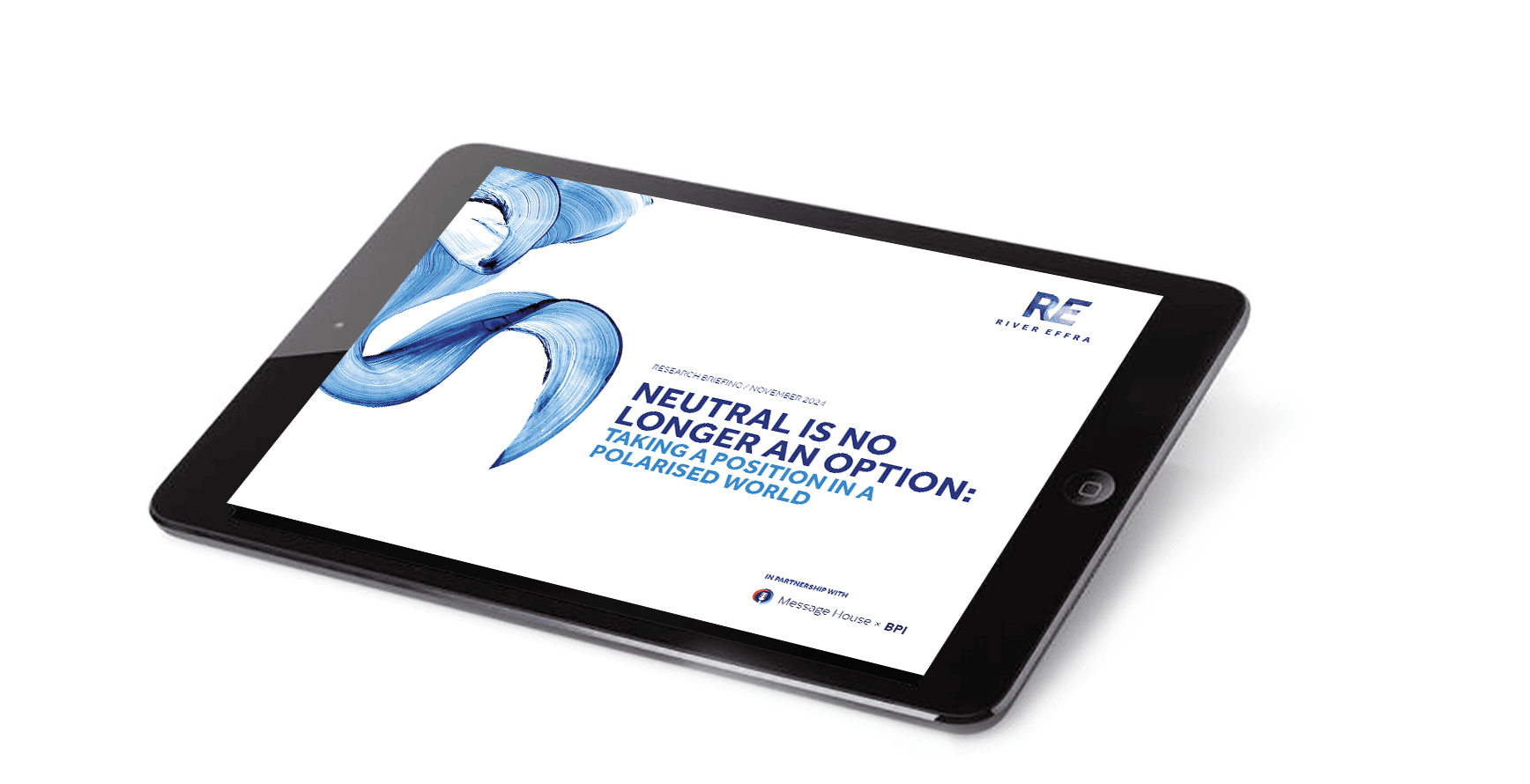
Latest RESEARCH
Neutral Is No Longer An Option: Taking a position in a polarised world
When every decision, whether compiling the weekly shopping list, buying a car, deciding on an energy provider or simply grabbing a sandwich is reliant on complex global supply chains, every choice can feel politicised.
It’s perhaps no surprise that as consumers, employees or just interested stakeholders, we increasingly expect organisations to share their perspective on the major issues of our time that, for most, are far beyond their purpose and operational focus.
Pressure to take a position can come from many sides, with those who feel strongest invariably the loudest voices. Yet commenting on issues where statements can be used to further specific agendas or simply in which you are not substantively involved, from geopolitics to so-called ‘culture wars,’ feels precarious. Pick the ‘wrong’ side and you risk condemnation and cancellation.
In partnership with research consultancy, Message House BPI we conducted a quantitative survey of 1,513 members of the public, 23-28 October 2024, to understand the potential impacts on consumer attitudes of whether and how organisations should take a position on four current key topics: the Environment, Diversity, Equity & Inclusion, International Affairs and Party Politics. The total sample was weighted to be nationally representative of the UK.
Key Findings
These findings provide food for thought. If you would like to find out more about the data behind the findings, simply enter your name and email below and we’ll send you a copy of the full research report.

